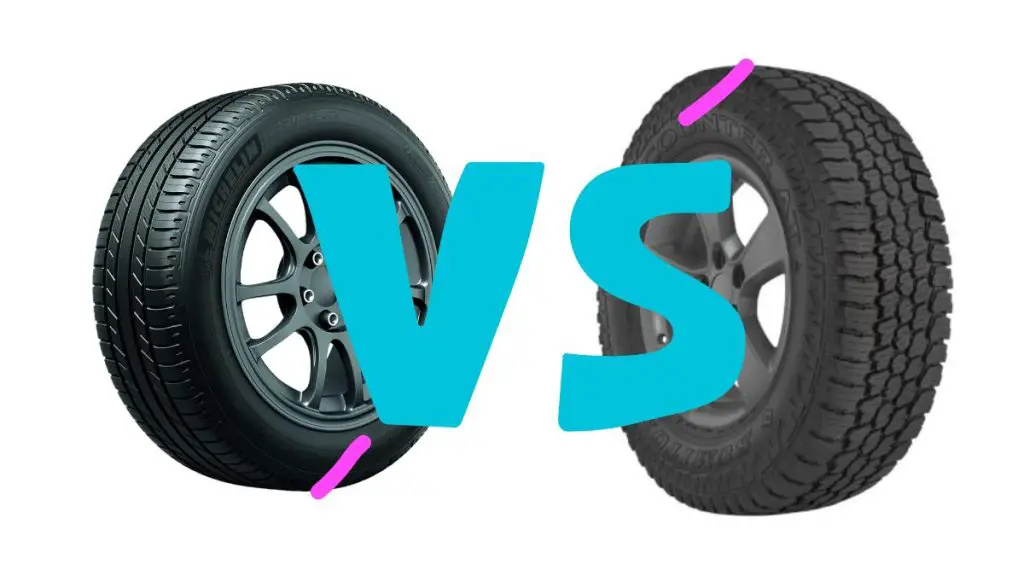Sumitomo tires vs. Michelin we will explain details in here. There are many factors to consider over while selecting the best tires for your car. Sumitomo Tires and Michelin are currently two of the most popular tire companies available. While both brands have a reputation for creating high-quality tires and also there are differences between them in terms of pricing, performance, and features.
In this article, we are explain and compare Michelin and Sumitomo Tires to provide you everything that require to select the most suitable pair of tires for your car or truck. We will look at each brand’s benefits and drawbacks. We focusing particular attention to the tire pattern, cost-effectiveness, and durability.
History and overview of both brands
In 1909, the Japanese company Sumitomo Tires was established. It was initially a rubber business which eventually diversified into making tires for an array of vehicles, including automobiles, Lorries, buses, even motorcycles. It’s widely recognized Sumitomo Tires produces high-quality, long-lasting tires. To continue to stay a step forward of the competition, the business has also made major investments in development and research.
When Andre and Edouard Michelin created the French tire company in 1889, it began a long and illustrious history. Over time, Michelin has gained notoriety for its ground-breaking products, including the radial tire, which transformed the market. The company’s dedication to excellence is demonstrated by its many accolades, including being awarded the most respected Company in Europe by Forbes magazine in 2019. In addition to producing tires for all types of vehicles, Michelin also operates several restaurants around the world under its subsidiary Guide Michelin.
Read More: Falken Tires VS Michelin
Key Feature of sumitomo tires
Enhanced Durability: Designed to last, the Sumitomo tire is constructed of premium materials that resist deterioration, saving you money over time.
Comfortable Ride: These tires‘ cutting-edge design minimizes road noise and vibrations, providing a more relaxing driving experience.
Improved Fuel Efficiency: Sumitomo tires’ low rolling resistance helps drivers use less fuel, saving them money at the pump and helping the environment.
All-Season Reliability: These tires offer dependable grip all year long and perform well in both summer and winter situations, providing you peace of mind no matter what the weather throws at you.
Key Feature of michelin tires
Superior Traction: You’ll never have to worry about slipping or skidding on icy or wet roads when you use Michelin tires. These tires offer exceptional traction, improving your vehicle’s control and making driving safer.
Increased Fuel Efficiency: By lowering rolling resistance on the road, Michelin’s inventive tire designs assist increase fuel efficiency. Long-term savings and reduced fuel use are also benefits of this.
Enhanced Comfort: Michelin tires offer a smooth and quiet ride since they were made with comfort in mind. Maximum comfort when driving is ensured by the cutting-edge materials used in tire manufacture to absorb shocks and vibrations from the road.
Eco-Friendly: Michelin tires not only deliver excellent performance, but they are also environmentally sustainable. Michelin is dedicated to lowering their carbon footprint and contributing to the preservation of our world for future generations by employing eco-friendly materials in their manufacturing processes.
Performance comparison
There are several things to take into account when comparing the performance of Michelin and Sumitomo tires. First off, both companies provide a variety of tire models for various car kinds and driving scenarios. In contrast to Sumitomo, Michelin is renowned for its superior quality and higher price.
Michelin tires are frequently regarded as superior in terms of handling and traction on the road because of its cutting-edge technology and particular tread designs. On the other hand, Sumitomo delivers good value for those on a tighter budget along with respectable performance under typical driving circumstances.
Quality and longevity are additional factors to take under consideration. Because Michelin tires are made of superior components, they usually are more durable than Sumitomo tires. However, this also suggests they are more expensive.
Customer satisfaction
Customer satisfaction is a crucial element that has the power to build or ruin any enterprise. Sumitomo Tires and Michelin are two of the industry’s top companies when it comes to tires. Although both brands have a following of devoted customers, one stands out when it comes to customer happiness.
Consumer evaluations claim that Sumitomo tires continually obtain worse customer satisfaction ratings than Michelin tires. This may be due to an array of matters, including the use of superior supplies during production or a more effective distribution system that makes tires last longer.
Despite these ratings distinctions, it’s essential to bear in that each person’s experiences are likely to vary based on how they drive and the condition of the roads. However, business longevity depends on full customer satisfaction, and Michelin’s history indicates that they’re doing something right in this regard.
Environmental impact
Two of the most renowned tire brands on the market were Michelin and Sumitomo Tires. Despite any of these companies has a variety of advantages and disadvantages, one important aspect which differentiates all is how their affect the environment.
The Michelin has been making attempts to lessen its environmental impact. The company has a well-established environmental strategy that emphasizes reducing emissions of greenhouse gases and improving energy efficiency as well as advancing environmentally friendly transportation. Michelin makes substantial expenditures in research and development in order to deliver environmentally friendly tires that are manufactured using modern technology and renewable resources.
Sumitomo Tires, on the other hand, has not made a lot of information about its sustainability activities public. There are no explicit targets or objectives set by the corporation for reducing its environmental impact. However, Sumitomo Tires asserts that it adheres to stringent environmental laws and regulations in order to pursue ethical manufacturing.
Availability
The availability of Michelin tires is greater than that of Sumitomo tires. The global presence of Michelin is greater and its distribution network is wider. Since their products are widely available at tire shops and dealerships around the world, many motorists who want high-quality tires frequently choose them.
Conversely, Sumitomo tires might not be as accessible as Michelin tires. Although their distribution network is not as vast as Michelin’s, they are also sold through a variety of tire shops and dealerships. This does not necessarily imply, nevertheless, that Sumitomo tires are less dependable or of lesser quality than those made by Michelin.
Price comparison
In pricing of Sumitomo Tires VS. Michelin. Here are many parts to take into consideration when selecting the most suitable tires for your car. Cost is a few of the more crucial elements, so contrasting pricing between several brands will help you make an informed decision. For this case, we’ll compare Michelin and Sumitomo Tires, two generally-known tire companies.
Sumitomo Tires are known for their affordable prices without compromising on performance. Their line of passenger car tires includes options such as the HTR Enhance LX2 and Touring LS T which offer all-season traction and durability at a reasonable cost. Conversely, Michelin is renowned for creating premium tires with exceptional grip and handling skills. The Michelin Pilot Sport 4S is a top-performing summer tire with outstanding dry and wet performance, but it also has a high cost.
The choice between Michelin and Sumitomo tires ultimately comes down to your financial situation and driving requirements. Sumitomo tires may be a better choice for you if you’re looking for reliable tires that remain within the budget. However, despite its greater price, Michelin might be a good option if performance is your primary concern and are prepared to spend more for it.
Conclusion
In conclusion of Sumitomo Tires VS. Michelin. In terms of longevity and toughness, Michelin clearly prevails over Sumitomo. If properly cared for, their tires can go up to 100,000 miles or more, compared to Sumitomo’s typical lifespan of 50,000–60,000 miles. It should be emphasized, nevertheless, that Sumitomo’s less expensive choices provide outstanding value for the money.
With respect to producing tires, each brand has its advantages and disadvantages. Your final decision is going to be based on whether you value price or performance more, but whatever of these two leading brands you select, you can be certain that you’re getting an excellent product from an established manufacturer.
The Next Road (thenextroad.com) is an affiliate of the Amazon Services LLC Associates Program, so you can access the Amazon marketplace when on this domain. We will earn a commission from your qualified purchases.

